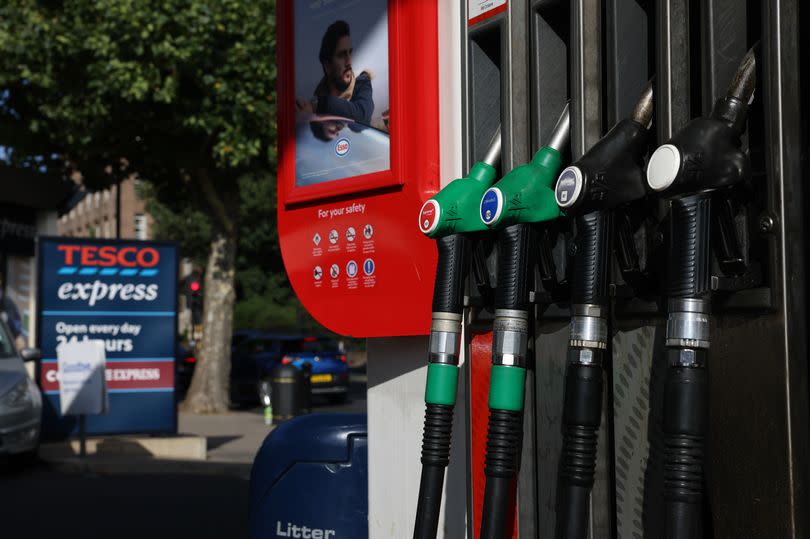Drivers buying E10 at all forecourts cautioned over 'performance' in some cars

Motorists filling up at Tesco, Sainsbury's, Asda and Morrisons are being cautioned about a common fuel available at all forecourts that could potentially harm their vehicles.
E10 fuel was first introduced across the UK back in 2021. According to the Gov.uk website, the fuel is now widely used around the world and has also been the reference fuel against which new cars are tested for emissions and performance since 2016.
However, energy experts are now issuing warnings about the fuel, which they say could damage the internal mechanisms of cars, especially older models. It has been said that the fuel could "worsen pre-existing conditions" on "less efficient" vehicles.
Darren Miller from BigWantsYourCar.com has voiced his concerns. He cautioned: "It's performance in cars with smaller engines could also be less efficient, as some reports suggest it falls short of E5's efficiency. For those with vintage vehicles, caution is advised when considering E10 fuel due to its increased ethanol content, which could worsen pre-existing conditions in older engines.
"Over time, engines can accumulate carbon, which might increase compression pressures and cause knocking or pinging."
Join the Daily Record's WhatsApp community here and get the latest news sent straight to your messages.
Before E10 was introduced, the standard unleaded petrol was E5, composed of 95 percent regular unleaded petrol and 5 percent renewable ethanol, reports Birmingham Live.
Most petrol cars produced since the 1990s can run on E10 fuel without problems, but there are some exceptions, particularly models from the early 2000s. E10 can affect older cars in various ways, including causing issues with cold starts and vapour locks.
Ethanol's increased volatility can lead to vapour lock (petrol turning into gas) during high operating temperatures, resulting in stalling. Its high solvency can also cause issues with various seal and gasket materials used in fuel systems, as well as with glassfibre resins.
In addition to the risk of fuel leaks, rubbers and resins can partially dissolve, creating deposits that could clog carburettor jets. Furthermore, ethanol can become acidic and corrode aluminium, zinc, and galvanised materials, along with brass, copper, and steels coated in lead or tin.
Don't miss the latest news from around Scotland and beyond. Sign up to our daily newsletter here.

 Yahoo News
Yahoo News 
